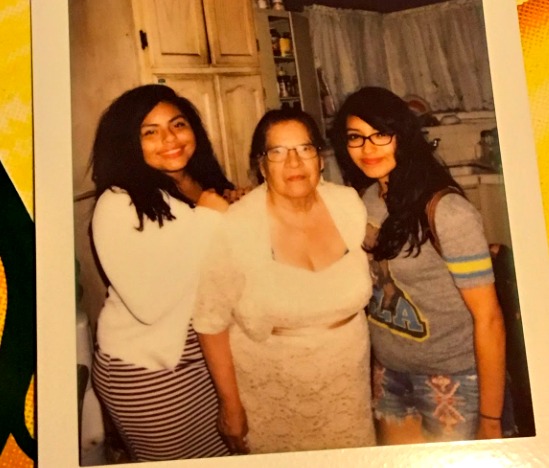“We hold these truths to be self-evident, that all men are created equal, that they are endowed by their Creator with certain unalienable Rights, that among these are Life, Liberty, and the pursuit of Happiness.” Thomas Jefferson
At 10 years old, this idea filled my 10 year old heart with so much excitement, empowerment, and motivation. The thought that hard work was the key to fulfill my family’s dream of me graduating from high school一maybe even college, owning a house, becoming a teacher, traveling…was unbelievable.
My ancestors’ wildest dream, I thought of my abuelita.
My abuela loved her home in Jalisco, Mexico, but she knew she couldn’t stay there. My grandma grew up collecting palm tree branches for her family. Meticulously placed leaves were assembled to create a roof thats was held up entirely by broken branches, scraps of spare material, and hope. You see, my grandma grew up sleeping on an unforgiving bed of dirt. When it rained, she sat soaking wet alongside her brothers and sisters, desperately attempting to keep the room from entirely collapsing. Her family grew up in a constant state of hunger, never once complaining about how many days someone went without food or water; this was just normal for everyone. It was common for babies, toddlers, and teenagers to die of starvation. She saw her own 17-year-old brother’s cries and aches fade away, hunger won.
At 26, she left the only place she ever called home. Despite everything she endured growing up, she loved her country, but she loved her children more. My abuela didn’t want her children to face the same experiences she did. No one deserves to watch their 17-year-old brother die right before your eyes due to food insecurity. At 26, she crossed the border and migrated to the United States, a beautiful country built by immigrants. My grandma migrated to South Central Los Angeles with her husband and children.
Privilege is random; inequity is systemic.
Almost every identity we carry (gender, race, sexual orientation, our guardians’ income status) is completely randomly assigned to us at birth. Our identities are not deficits, but they are constantly treated as such. Systemic inequity means a decision made by people in power impacts communities differently according to a privilege they carry. My abuela didn’t ask to be born in poverty; she didn’t ask to be born a cisgendered Latinx women, she just is. Trump is not allowed to generalize an entire group of people and call my grandma an animal.
I want to be clear, seeking a better life for your family is not illegal; the pursuit of happiness is embedded in this country’s foundation. Latinx people, like both the pilgrims and British indentured servants, were pushed out of their homes to escape poverty, war, abuse, and violence. Seeking asylum is not asking for handouts, survival is a human right. Don’t forget almost each and everyone of us are products of resilient immigrants. As American people, it is our duty to hold ourselves accountable and ensure the pursuit of happiness is accessible to everyone.
The Trump administration continues to dehumanize (yes, he called them animals), traumatize (yes, separation and being forced in a cage is traumatic), and demoralize human beings. Privilege is opting out of learning about the traumatic realities these human beings are going through. Privilege is being able to talk about an injustice and philosophize about it in class or over lunch.
Acknowledge how your own privileges come into play today. Now is the time to be brave; hold yourself, your loved ones, elected officials, accountable to fighting injustice.
“The ultimate tragedy is not the oppression and cruelty by the bad people but the silence over that by the good people.” Martin Luther King
Desiree Martinez
Latest posts by Desiree Martinez (see all)
- Broken Student Loan System Gets An Overhaul - June 6, 2022
- Cellblock Scholars: The First College Behind Bars - May 25, 2022
- Sin Preparación en la Universidad; Puntajes bajos debido a la Pandemia - April 27, 2022
- Unprepared in College; Sinking Scores Due to Pandemic - April 21, 2022
- Los Estudiantes No Se Inscriben en la Escuela Para Hacer una Declaración Política, Ellos Van a Aprender - October 29, 2018

